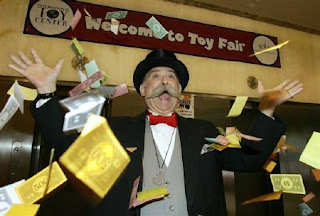NEW YORK:– A miserly duck, a vampire and pair of precocious kids are among the richest fictional characters, according to a ranking by Forbes.
Scrooge McDuck, the "penny-pinching poultry" with a fortune in gold coins whose estimated worth is $44.1 billion (26.9 billion pounds), headed the list of Forbes' "Fictional 15" wealthiest imaginary characters.
Scrooge McDuck, the "penny-pinching poultry" with a fortune in gold coins whose estimated worth is $44.1 billion (26.9 billion pounds), headed the list of Forbes' "Fictional 15" wealthiest imaginary characters.
But despite his riches, McDuck still trails Microsoft founder Bill Gates' $53 billion.
Vampire-themed franchises have become big business, so it's no surprise that Carlisle Cullen, the 370-year-old vampire from the "Twilight" books and films who has been accruing interest on a small savings account since 1670, came in second with $36.2 billion.
A pair of over-achieving youngsters came in third. Artemis Fowl II, the prepubescent scion of an Irish crime family from Eoin Colfer's Artemis Fowl novels, was pegged at $13.5 billion, while the altruistically inclined comic book character Richie Rich totalled $9.7 billion.
To qualify for the list the characters must be known in their fictional stories and by their audiences for being rich.
"Net worth estimates are based on an analysis of the fictional character's source material, and where possible, valued against known real-world commodity and share price movements," Forbes said.
While the list, which Forbes editors have compiled since 2005, is all in fun, the process and resultant numbers are serious business, said special projects executive editor Michael Noer.
"We go to great lengths to calculate their net worth," Noer said in an interview. "It's similar to how we calculate real billionaires."
Market forces, especially commodities, also provided some guidance.
"McDuck was up over 30 percent, which is what gold has done this year, and his wealth is mostly in gold," Noer explained.
Similarly Jed Clampett, the country bumpkin who found black gold in the television series "The Beverly Hillbillies" benefited from rising oil prices for a $9.5 billion net worth.
Mr. Monopoly, the top-hatted, moustachioed character from the popular board game, placed ninth with $2.6 billion. The editors based his worth on the current value of Atlantic City real estate and a presumed percentage of property ownership.
Vampire-themed franchises have become big business, so it's no surprise that Carlisle Cullen, the 370-year-old vampire from the "Twilight" books and films who has been accruing interest on a small savings account since 1670, came in second with $36.2 billion.
A pair of over-achieving youngsters came in third. Artemis Fowl II, the prepubescent scion of an Irish crime family from Eoin Colfer's Artemis Fowl novels, was pegged at $13.5 billion, while the altruistically inclined comic book character Richie Rich totalled $9.7 billion.
To qualify for the list the characters must be known in their fictional stories and by their audiences for being rich.
"Net worth estimates are based on an analysis of the fictional character's source material, and where possible, valued against known real-world commodity and share price movements," Forbes said.
While the list, which Forbes editors have compiled since 2005, is all in fun, the process and resultant numbers are serious business, said special projects executive editor Michael Noer.
"We go to great lengths to calculate their net worth," Noer said in an interview. "It's similar to how we calculate real billionaires."
Market forces, especially commodities, also provided some guidance.
"McDuck was up over 30 percent, which is what gold has done this year, and his wealth is mostly in gold," Noer explained.
Similarly Jed Clampett, the country bumpkin who found black gold in the television series "The Beverly Hillbillies" benefited from rising oil prices for a $9.5 billion net worth.
Mr. Monopoly, the top-hatted, moustachioed character from the popular board game, placed ninth with $2.6 billion. The editors based his worth on the current value of Atlantic City real estate and a presumed percentage of property ownership.

No comments:
Post a Comment